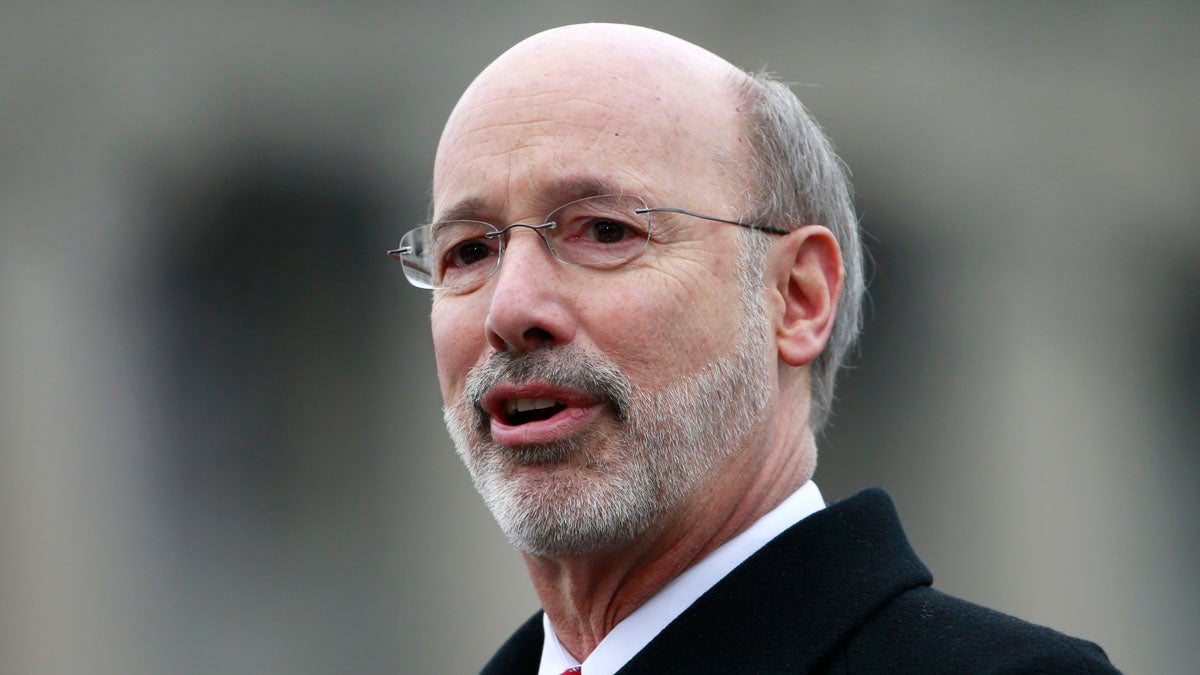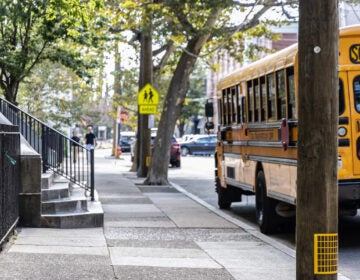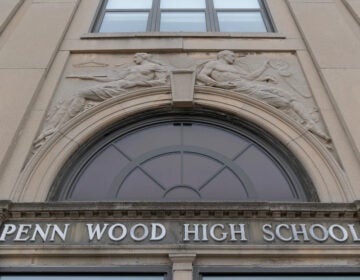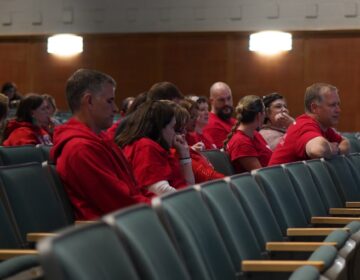Wolf lets bill become law that weakens teacher protections amid other school policy shifts
Gov. Tom Wolf has allowed a bill to become law that weakens teacher seniority protections and gives school districts more flexibility in their rationale for making layoffs.
Listen 2:00
Pennsylvania Gov. Tom Wolf will allow a bill to become law that weakens teacher seniority and gives school districts more flexibility in their rationale for making layoffs. (AP)
Pennsylvania Gov. Tom Wolf has allowed a bill to become law that weakens teacher seniority protections and gives school districts more flexibility in their rationale for making layoffs.
School districts now will be able to cite “economic reasons” as a rationale for furloughing teachers.
Previously, districts could only slash staff by closing schools, cutting whole academic programs, or pointing to enrollment declines.
State Rep. Steven Bloom, R- Cumberland, said that’s bad public policy.
“So they may eliminate the art program, the music program, the languages program, or they may close a school building — because that’s the only flexibility the current law gives them,” said Bloom.
The new law, which takes effect Sunday, will also weaken teacher seniority protections. Previously, any layoffs had to be done in inverse order of seniority — last in, first out. Under the new law, schools must instead prioritize the state’s teacher effectiveness rating system, which is based on a mix of classroom observations and student performance on state standardized tests.
“The vast majority of our teachers are doing a good job,” said Bloom. “They’re either rated distinguished or proficient under the existing evaluation system. There is a very small percentage of teachers, under 2 percent, that are in the ‘needs improvement’ or ‘failing’ categories. And there would be no reason in the world we would want to keep a ‘failing’ teacher in the classroom rather than a ‘proficient’ or ‘distinguished’ teacher.”
The state’s largest teachers union has criticized these shifts, emphasizing the importance of experience and longevity.
“The concern has always been that school boards will use arbitrary and subjective criteria to force teacher furloughs,” said Wythe Keever, spokesman for the Pennsylvania State Education Association.
Among teachers with the same rating, seniority would still win the day. The law also mandates that teacher compensation cannot be considered when making decisions, and says districts seeking to downsize must also lay off an equal percentage of administrative staff — unless the state grants a waiver.
Last year, Wolf vetoed a standalone bill, sponsored in the House by Bloom, with nearly the exact same language.
But this year, Republican leaders added the layoff language to a larger school code measure that included many other popular provisions.
These include: again pushing back a requirement for students to pass standardized tests to graduate from high school; expanding student education on the opioid crisis; and banning the practice of denying school lunch to students without money to pay for it.
The passage of a school code bill was not required to finalize the larger state budget.
The Legislature passed the bill last week. Wolf has been mulling his response since.
Wolf spokesman JJ Abbott sent this note to explain the governor’s Friday decision:
“Governor Wolf believes components of this bill are important: delaying the Keystone Exams, expanding opioid education in schools, curbing ‘lunch shaming,’ and providing additional funding to help distressed school districts.
“Though there are components of the bill that he has concerns about, particularly Republican plans around teacher evaluation and termination, he will allow it to become law but withhold his signature. Despite those who prioritize putting pressure on public schools and making the jobs of teachers harder, Governor Wolf will continue to protect and invest in education.”
WHYY is your source for fact-based, in-depth journalism and information. As a nonprofit organization, we rely on financial support from readers like you. Please give today.






